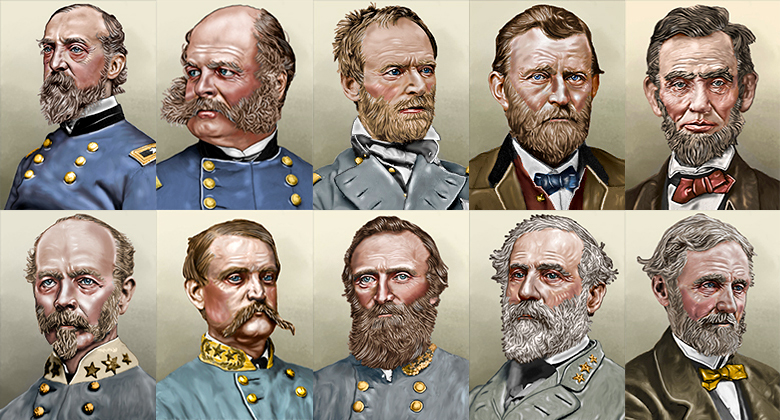The United States was untouched by the war, they did not have to recover and were in a high gear. As soon as the war ended they almost immediately began expanding West to clear the path for the Rails.
Now, the Confederacy on the other hand, they were an occupied country essentially until the Depression and World War II and did not recover until the post-war boom - which directly ties into the racial disputes that occurred simultaneously.
Thank you.
I'm quite well familiar about the North - the United States - being capable to avoid the disaster - which the South - the Confederate States was confronted due to the Sherman's March through Georgia and the other things occurring the same time, affecting the South's downfall.
Still, I admit, I'm not an expert in history in this era of the America. I just like to think with my own human mind, and by the lessons about right and wrong given to me by my mother and father, the standards which were given to me by our education system, which is quite well balanced with the European standards, I think.
In my opinion, the nation cannot be united if some of its parts is/are occupied by the citizens of the same country. By forcing under the rule one cannot say, it was done uniformly and under the same will.
I'm a great admirer of the rise about the American limelight, which in my knowledge happened after the Civil War and was completed while entering the WWI. I sure hope, we could see some days of that during the days to come. I like driving in a high gear, but maybe more, I like driving safely.
By 1869, Stanford drives the Golden Spike, signifying the completion of the first Transatlantic Railroad that was the foundation for the powerful United States economy that would dominate the coming century. Grant is elected president and the Railroad Interests he supports create the most corrupt US Presidency until Ronald Reagan's while rail lines proliferate and grow. And when Grant goes to the White House, Bill Sherman goes West and makes Total War upon anything that moved or crawled that got in the way of the rails and the ever growing expansion that allowed good God Fearing White Folk to travel West in peace and enjoy the American Dream that creates nightmares for others.
Yes, the Railroads, is it 5 tracks through your country, from the East Coast to California, Oregon and Washington. Perhaps its much more nowadays, but 5 tracks, they said to me while I was in school in the 1990's. Well, anyway, it's the foundation of infrastructure today.
During my schooldays we all sat quietly and we stood and spoke while asked so.
That is not decades of recovering, that is a swift bounce up.
Yes, I love swift bounce-ups. But shouldn't it come by consensus?
Between the American Civil War and the World War I, the United States practiced aggressive expansionism. Continuous wars against Mexico, at least skirmishing all the time at the Mexican border and the Spanish Wars, still your president was granted by the Nobel Peace Prize?
Please, help me to understand your development.
-Jopa79-




